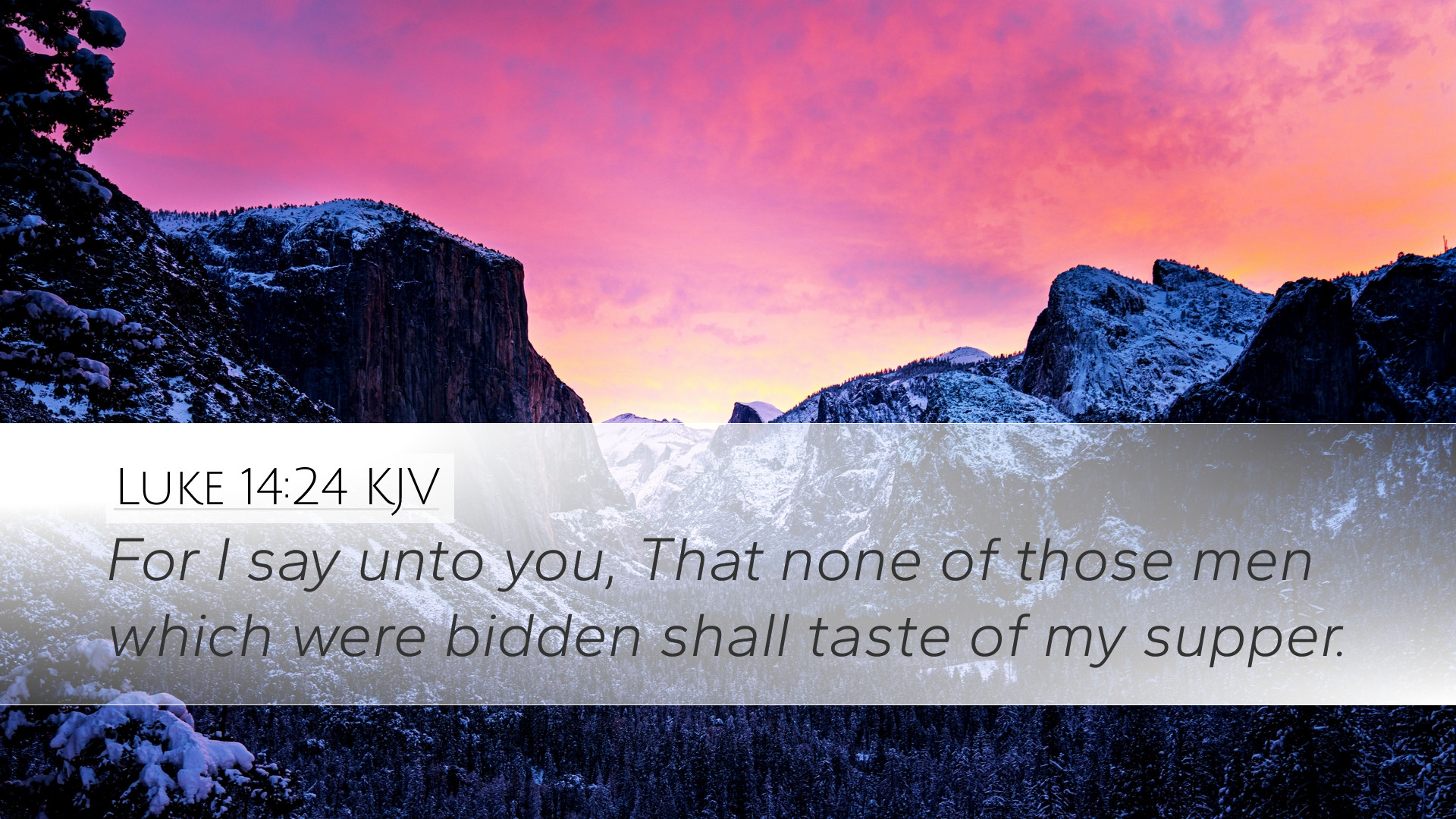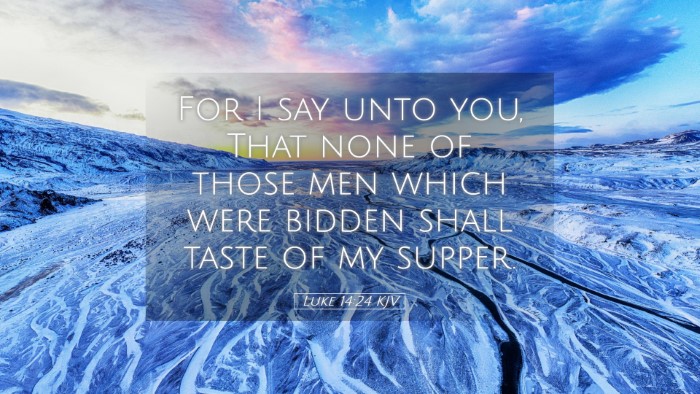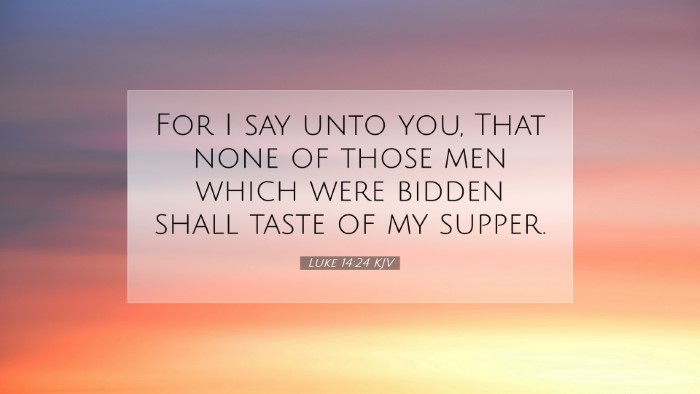Contextual Background
The Gospel of Luke contains many of Jesus' teachings through parables, particularly emphasizing social gatherings and the Kingdom of God. In Luke 14, Christ uses the setting of a banquet to illustrate the invitation to God's salvation and the consequences of rejecting it. This verse falls within a larger parable about a great supper, where the master represents God and the invited guests symbolize Israel's leaders who reject His call.
The Invitation and the Rejection
Matthew Henry notes that this verse highlights a solemn warning to those who refuse God's gracious invitation. The supper symbolizes the Kingdom of God, where those who accept the invitation enjoy the blessings of His salvation. The guests who make excuses illustrate common human tendencies to prioritize worldly concerns over spiritual commitments.
Excuses of the Invited
- Henry signifies that the excuses are not outright denials but rather distractions that prevent individuals from enjoying the spiritual banquet.
- Albert Barnes emphasizes that such excuses are indicative of a lack of true desire for the things of God.
- Adam Clarke acknowledges the deeper spiritual implications of refusing the divine call, suggesting this reflects a broader rejection of God's grace.
The Consequences of Rejection
This verse serves as a forewarning about the dire consequences of neglecting God's call. Henry asserts that rejection of the invitation results in exclusion from the blessings offered at the feast. Essentially, those who were initially invited will have no share in the supper, symbolizing the loss of eternal life and fellowship with God.
The Nature of God's Call
Albert Barnes draws attention to the nature of God's call, which is both gracious and persistent. God continues to extend His invitation even when faced with rejections. Receiving this call is contingent upon an individual’s response and readiness to partake in what God offers.
This reflects a divine hope that those who initially reject will understand the significance of their decision before it is too late.
Theological Implications
This verse carries profound theological implications concerning predestination and free will. Henry suggests that while God's grace is freely given, the acceptance of this grace is contingent upon the individual’s response. This aligns with the notion of human responsibility in the face of divine sovereignty.
The rejection illustrated in this parable resonates with the idea that many are called, but few are chosen. This stresses the importance of responding to God's invitation with urgency and sincerity.
Application for Today
The message encapsulated in Luke 14:24 is particularly relevant for contemporary believers and church leaders. It serves as a clarion call to examine priorities and ensure that the things of God take precedence over worldly distractions.
- Pastors are reminded to challenge congregants to evaluate their responses to God's call.
- Students and theologians are encouraged to explore the themes of invitation, rejection, and the nature of divine grace in the broader context of scripture.
- All believers are urged to take seriously the offer of fellowship with God and to be vigilant against the tempting distractions of modern life.
Conclusion
Luke 14:24 serves as a significant proclamation regarding the nature of God’s invitation to partake in the divine feast. Through the insights of esteemed commentators like Matthew Henry, Albert Barnes, and Adam Clarke, we are reminded of the seriousness with which we must approach the call of God. The urgency is clear: may we never allow the distractions of life to keep us from tasting of the rich supper offered by our gracious Lord.


